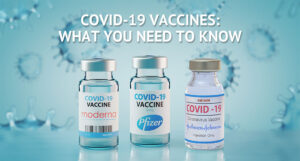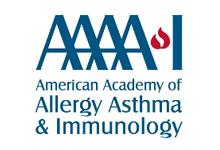Vaccinations are our best protection against  infections that, in the past, have killed many people. There are many diseases that have been nearly eradicated with effective vaccination, some of which include polio, smallpox, and tetanus. There are different types of vaccines, but they all work by causing your body to make antibodies. Vaccines work by teaching your body to recognize specific dangerous pathogens, so your immune system is prepared to fight off that infection in the future.
infections that, in the past, have killed many people. There are many diseases that have been nearly eradicated with effective vaccination, some of which include polio, smallpox, and tetanus. There are different types of vaccines, but they all work by causing your body to make antibodies. Vaccines work by teaching your body to recognize specific dangerous pathogens, so your immune system is prepared to fight off that infection in the future.
Vaccines against COV ID-19 have been available since December 2020. They are now widely available throughout the United States. COVID-19 vaccines were developed using science that has been around for decades. These vaccines are not experimental but have gone through the required states of clinical trials with extensive, vigorous testing and monitoring. In order to receive emergency use authorization (EUA), it must meet rigorous safety standards set by the FDA showing safety and efficacy.
In the U.S., there are currently 3 available COVID-19 vaccines:
- Pfizer-BioNTech mRNA COVID-19 vaccine:
- EUA on December 11, 2020 for ages 16 and up
- EUA on May 10, 2021 for ages 12 and up
- Full FDA approval on August 23, 2021 for ages 12 and up
- Two-dose vaccine; second dose is given 3 weeks after the first
- Over 200 million doses given in the U.S.
- Moderna mRNA COVID-19 vaccine:
- EUA on December 18, 2020 for ages 18 and up
- Two-dose vaccine; second dose is given 4 weeks after the first
- Over 150 million doses given in the U.S.
- Janssen/Johnson & Johnson COVID-19 vaccine:
- EUA on February 23, 2021 for ages 18 and up
- One-dose vaccine
- Over 15 million doses given in the U.S.
Clinical trials for these vaccines happened quickly compared to usual and this is not only because of the need for an effective vaccine to help control the pandemic, but also because research scientists and drug companies had already learned a lot from working on other vaccines.
How Do These COVID-19 Vaccines Work?
mRNA vaccines
Both the Pfizer-BioNTech and Moderna vaccines are called an “mRNA vaccine.” Researchers have been studying and working with mRNA vaccines for decades. mRNA vaccines have been studied before for flu, Zika, rabies, and cytomegalovirus (CMV). Beyond vaccines, mRNA has been used in cancer research to trigger the immune system to target specific cancer cells.
The mRNA in both vaccines is synthetic, not extracted from the actual virus. The mRNA carries instructions for the body to make a specific protein, the “spike protein”, which the virus uses to gain entry to cells. In turn, the immune system starts to make antibodies that can recognize and attack the virus if exposed in the future. Studies have shown that these vaccines are 95% effective after the second dose.
Viral vector vaccine
The Janssen COVID-19 vaccine is a viral vector vaccine. This vaccine uses a modified version of a different virus (the vector) to deliver instructions to the body to make copies of the “spike protein”. The immune system responds by creating antibodies that can help attack the virus in the future. Studies have shown this vaccine to be 66% effective after one dose.
Facts About the COVID-19 Vaccines
These vaccines DO NOT contain actual live virus
They DO NOT give you the COVID-19 infection
They DO NOT affect or interact with our DNA in any way
They DO NOT affect fertility negatively
They DO NOT contain any microchip or electronic components
They are SAFE and EFFECTIVE
Who Can Get It? Where Can I Get It? Can I get it at NTAAC?
Everyone who is eligible should get vaccinated! These vaccines are now widely available at various pharmacies throughout the state. Currently, at North Texas Allergy and Asthma Center, we are offering the Moderna mRNA vaccine to our patients, ages 18 and up, by appointment only.
What Are the Common Side Effects?
Side effects can be common, particularly after the second dose of the mRNA vaccines. Some of the known side effects include injection site pain, tenderness, redness, fever, chills, fatigue, body aches, and headaches. These symptoms typically resolve within a few days, and it does not mean you are sick. It is an indication that the immune system is responding to the vaccine.
Allergic Reactions to COVID-19 Vaccines
Anaphylaxis is a life-threatening allergic reaction and has occurred with the COVID-19 vaccines in approximately 2-5 people per million vaccinated in the U.S – this comes out to a rate of 0.0002-0.0005%.
The exact cause of anaphylaxis is not clear; however, there is suspicion that an additive, polyethylene glycol which is found in both mRNA vaccines, may have triggered some of these reactions. Allergy to polyethylene glycol is very rare but has been reported in the literature in the past.
If you have had a severe allergic reaction to any ingredient in an mRNA COVID-19 vaccine, including polyethylene glycol, you should not get either of the currently available mRNA COVID-19 vaccines. If you have had a severe allergic reaction after getting the first dose of an mRNA COVID-19 vaccine, the CDC recommends that you should not get the second dose.
Polysorbate is not an ingredient in either mRNA COVID-19 vaccines, but it is an ingredient in the Janssen COVID-19 vaccine. This ingredient is closely related to polyethylene glycol. Thus, people who are allergic to polysorbate should not get the Janssen COVID-19 vaccine or the mRNA COVID-19 vaccines due to the possibility of cross-reaction with polyethylene glycol.
These vaccines DO NOT contain eggs, gelatin, preservatives, or latex.
For full list of ingredients for Pfizer-BioNTech COVID-19 vaccine, click here:
https://www.fda.gov/media/144414/download
For full list of ingredients for Moderna COVID-19 vaccine, click here:
https://www.fda.gov/media/144638/download
For full list of ingredients for Janssen COVID-19 vaccine, click here:
https://www.fda.gov/media/146305/download#page=2
These COVID-19 vaccines should be administered in a health care setting where all individuals can be observed for at least 15-30 minutes after the injection and anaphylactic reactions can be treated with epinephrine as first line treatment.
Other Rare Adverse Events
Thrombosis with thrombocytopenia syndrome is a condition associated with blood clots and low platelets. As of September 22, 2021, more than 14.8 million doses of the Janssen COVID-19 Vaccine have been given in the United States. The CDC and the FDA have identified 47 confirmed reports of people who got the Janssen COVID-19 Vaccine and later developed this condition. The rate of this condition comes out to a rate of 0.0003%. Women younger than 50 years old should be aware of the rare but increased risk of this adverse event. There have been only 2 reported cases of this condition following the Moderna vaccine. This is out of 372 million mRNA vaccines (rate of 0.0000005%). The mRNA vaccines are not associated with increased risks of clots.
Guillain-Barre Syndrome (GBS) is a rare disorder that is associated with muscle weakness and paralysis. Out of 14.8 million doses of the Janssen COVID-19 vaccine, there have been reported 210 cases of GBS – this is a rate of 0.001%. Cases have mostly occurred about 2 weeks after vaccination, mostly in men and greater than 50 years or older, and majority recover completely.
Myocarditis is inflammation of the heart muscle, and pericarditis is inflammation of the outer lining of the heart. There have been 892 cases reported of either of these conditions out of approximately 390 million COVID-19 vaccine doses (rate of 0.0002%). Most cases were reported after the mRNA vaccine in males, ages 30 years and younger and majority recover completely. This is in contrast to myocarditis after COVID-19 infection, which occurs at a rate of 0.0146%.
Death after COVID-19 vaccination is rare. The current reported rate is 0.0021% among people who received a COVID-19 vaccine. A review of available clinical information, including death certificates, autopsy, and medical records, has not established a causal link of death from COVID-19 vaccines.
Reports of adverse events to the Vaccine Adverse Event Reporting System (VAERS) following vaccination, including deaths, do not necessarily mean that a vaccine caused a health problem.
3rd Dose Vaccinations
CDC recommends that people with moderately to severely compromised immune systems receive a 3rd dose of mRNA COVID-19 vaccine at least 28 days after a second dose of their Pfizer-BioNTech COVID-19 vaccine or Moderna COVID-19 vaccine.
Booster Vaccinations
As of October 21st, 2021, if you have received any of the three vaccines (Pfizer-BioNtech, Moderna, or J &J), a booster vaccine is recommended for 18 years and older. You may choose which vaccine booster you would like to receive. The CDC’s recommendations now allow mix and match dosing for booster shots.
Eligibility includes the following:
- 65 years and older
- 18 years and older with underlying medical conditions
- 18 years and older in long-term care setting
- Adults 18-64 at increased risk of exposure/transmission due to their occupation
Please refer to this helpful chart for vaccine recommendations with 3rd dose and booster doses VaxRecAddBoosterDoses
Updated information on COVID-19 vaccine booster shots can also be found here: https://www.cdc.gov/coronavirus/2019-ncov/vaccines/booster-shot.html
Do the Current COVID-19 vaccines help against the various SARS-CoV2 strains?
Yes! They do help decrease morbidity and mortality from COVID-19 infection.
Special Circumstances and Special Recommendations
If you have hay fever, allergic rhinitis, food allergy, insect allergy or medication allergy, you can still get the COVID-19 vaccine, but we recommend that your vaccination be administered in a facility that can observe you for 15-30 minutes and treat any allergic reactions if necessary.
If you have asthma, you can safely get the vaccine and should get the vaccine. Current evidence suggests that people with asthma are not at higher risk for severe COVID-19, except for those with uncontrolled or severe symptoms.
If you are on allergy shots, biologics, or immunoglobulin replacement therapy, you may still get the COVID-19 vaccine, but not on the same day. We recommend waiting 24 hours after your allergy shot, biologic or IgG infusion before getting the COVID-19 vaccine. We also recommend waiting at least 72 hours after the COVID-19 vaccine to schedule your allergy shot, biologic or IgG infusion.
Even if you have had COVID-19 before, it is still recommended for you to get the vaccine when you are free of symptoms and there is no active infection. Current evidence suggests that COVID-19 reinfection is uncommon in the 90 days after initial infection, so people with documented acute COVID-19 infection may delay the vaccine until the end of their 90 days if they wish.
If you had COVID-19 and received convalescent plasma, COVID-19 vaccine would need to be delayed for 90 days.
If you have an immunodeficiency, you can still receive the vaccine. Since none of the current available vaccines are live, there is no additional risk to immunodeficiency patients. Contact our office for further recommendations.
If you have a known history of mast cell activation syndrome or mastocytosis, you may still be able to receive the vaccine, but contact our office for further recommendations.
Overall, the risk of having a severe allergic reaction or other adverse events from the COVID-19 vaccines is very low. Evidence shows that the benefits of COVID-19 vaccination outweigh the known and potential risks.
We are currently offering the 2 dose Moderna mRNA COVID-19 vaccine series to our patients, a third dose for our immunodeficiency and immunocompromised patients, and a booster vaccine for our patients. If you are a patient of NTAAC and have not been vaccinated, contact our office for an appointment.
Information is constantly evolving. Vaccine clinical trials are still being conducted, particularly for children under the age of 12. There will likely be more information available over the next several months. We will keep you updated. Please schedule an in-person visit or a telemedicine visit with one of our board-certified allergists/immunologists at North Texas Allergy and Asthma Center if you have a history of anaphylaxis to vaccines or other concerns about receiving any COVID-19 vaccine.
Sincerely,
Samuel Foster MD, Roshni Foster MD, PhD, Shikha Mane MD and B.A. Badie, MD
Board-Certified Allergists
Adult and Pediatric Allergy and Immunology







